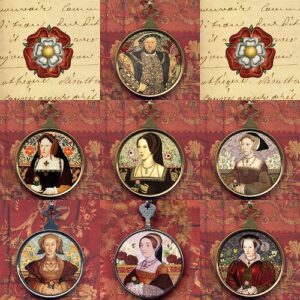 It’s not just Anne Boleyn who has been misrepresented by history, TV, film and fiction, I think every single one of the six wives has been misrepresented. Here are some of the labels, stereotypes and myths which the general public believe regarding these 16th century women:-
It’s not just Anne Boleyn who has been misrepresented by history, TV, film and fiction, I think every single one of the six wives has been misrepresented. Here are some of the labels, stereotypes and myths which the general public believe regarding these 16th century women:-
Catherine of Aragon – The wronged woman, the pious queen, the stubborn ex-wife who caused her daughter’s ill-treatment and who is to blame for Mary’s shortcomings and brutal reign, the boring one.
Anne Boleyn – The wh*re, the witch, the murderess, the adulteress, the one who slept with her brother out of desperation, the one with six fingers, the bi**h, the other woman, the homewrecker… or, alternatively, the martyr, the saint, the heroine and the one responsible for the English Reformation.
Jane Seymour – The meek, mild, virtuous, conservative queen who was as boring as she was plain, the only one who gave Henry a son.
Anne of Cleves – The Flanders Mare who was so ugly that Henry VIII couldn’t even bring himself to sleep with her!
Catherine Howard – The tart, the airhead, the nymphomaniac, the stupid one who deserved all she got.
Catherine Parr – The mature nursemaid who nursed Henry in his last years, the one who got away.
See what I mean? None of those labels are correct, are they? And don’t these women deserve for these myths to be debunked and for people to hear their real stories? I think so. Over the next few weeks, I will be looking at each of these women in turn and looking at exactly why these labels are so wrong.
Can you think of any other labels that these women have been given? Please share in the comments below.